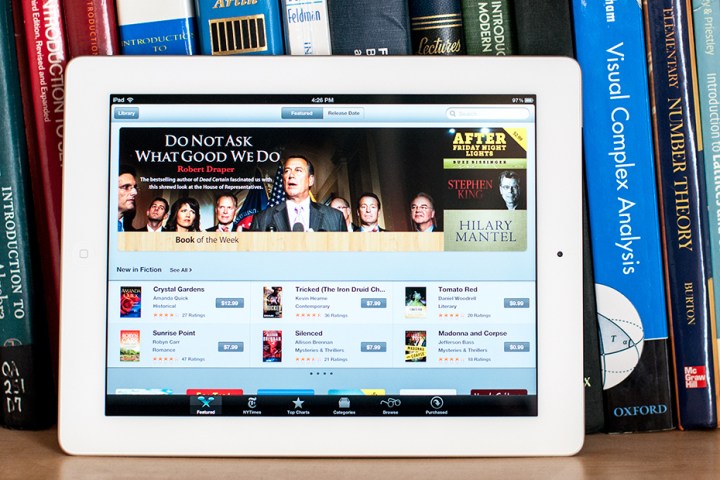
Apple had petitioned the Supreme Court after a federal appeals court ruled that the company was guilty of fixing ebook prices last June. However, the appeal was turned away by the justices without comment, leaving the June 2015 ruling — and the $450 million fine — standing.
Of course, the case itself is nearly six years old at this point. The company was first accused of fixing ebook prices back in 2010. In 2012, 33 states and the Justice Department all sued the company, accusing it of conspiring with the likes of Hachette, Simon & Schuster, Penguin, and more to set prices. Throughout the ordeal, Apple has maintained its innocence and fought tooth and nail to prove itself. The main goal of the company was to gain leverage against Amazon, which had grown a commanding lead in the ebook market at that point.
Apple suggests, however, that its actions increased competition in the ebook market, offering customers choice with the new iBook platform. Not only that, but the company also says that ebook prices have fallen since the iBook store was introduced into the market. In its filing, Apple says that a decision against it would have negative implications for creativity itself, suggesting that “disruptive entry” into stagnant markets often requires actions similar to what the company did.
As mentioned, the company will have to pay a hefty $450 million fine. Around $400 million of that fine will be paid out to ebook customers, $20 million to the states involved, and $30 million will go to legal fees. Customers who overpaid for ebooks will get credit that they can use for future ebook purchases. Even though it’s a pricy penalty, $450 million is spare change compared to the company’s net worth of around $700 billion.



